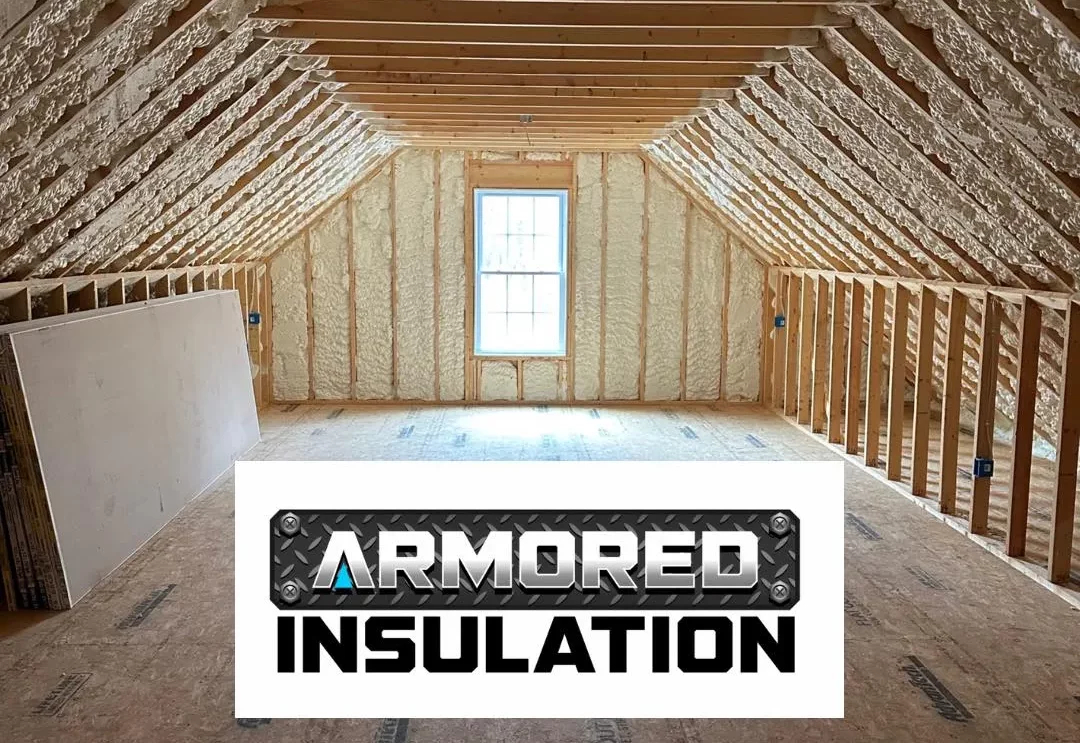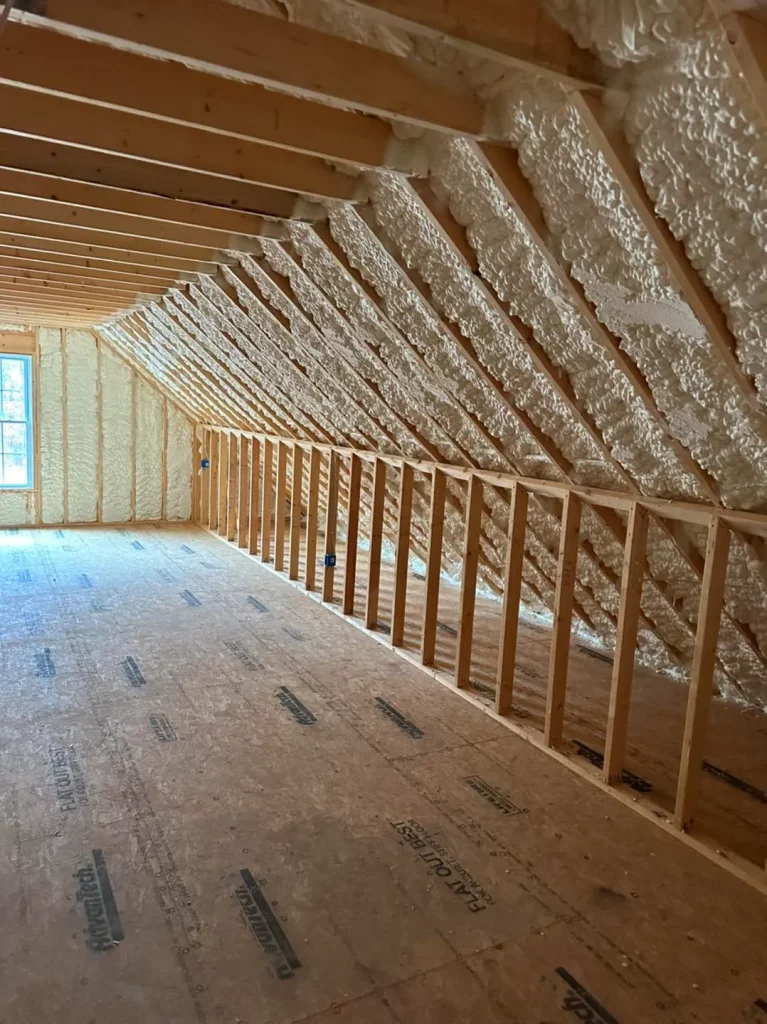
Spray foam insulation performs well in Louisville attics when high humidity, seasonal temperature swings, and energy retention are top concerns. Closed-cell spray foam offers a durable air seal and moisture barrier, making it a strong candidate for both vented and unvented attic assemblies. However, the decision depends on attic condition, ventilation design, and the presence of HVAC systems within the attic envelope.
For Louisville homeowners dealing with ice damming, high utility bills, or inconsistent indoor temperatures, spray foam delivers consistent thermal resistance. This article details key technical data, regional factors, and performance comparisons to help assess whether spray foam fits specific attic insulation needs.
Armored Insulation has installed spray foam in hundreds of Louisville homes with direct experience across attic retrofit and new-build projects. The insights below reflect practical outcomes observed in the field, not just theory.
The Louisville region sees high summer humidity and cold winters with regular freeze-thaw cycles. This places added demand on attic insulation to both seal air and resist moisture.
Key Performance Advantages in Local Conditions:
Closed-cell spray foam outperforms open-cell in attics where vapor resistance and structural rigidity are priorities.
| Feature | Closed-Cell Spray Foam | Open-Cell Spray Foam | Blown-In Cellulose | Fiberglass Batts |
|---|---|---|---|---|
| R-Value per inch | 6.0 – 7.0 | 3.5 – 4.0 | 3.2 – 3.8 | 2.9 – 3.2 |
| Air Seal Effectiveness | Excellent | Good | Moderate | Low |
| Moisture Resistance | High | Low | Moderate | Low |
| Durability (Pest/Settling/Mold) | High | Moderate | Low to Moderate | Low |
| Suitable for Unvented Attics | Yes | Conditional | No | No |
| Ideal for Retrofitting Complex Spaces | Yes | Yes | Limited | Limited |
| Specification | Value / Description |
|---|---|
| R-Value | 6.5 per inch (average) |
| Air Permeability | <0.02 L/s·m2 @ 75 Pa |
| Water Vapor Permeance | <1 perm at 2″ thickness |
| Application Thickness | 2″ to 4″ in attic rooflines |
| Flammability Rating | Class I (with ignition barrier coating) |
| Cured Density | 1.8 to 2.2 lbs/ft³ |
| VOC Emission (after cure) | Low (meets EPA standards) |

Before installing spray foam in a Louisville attic, confirm the following:
During summer installs, monitor substrate temperatures closely. Spray foam won’t adhere properly to overheated roof decks.
Armored Insulation provides solutions aligned with attic-specific needs:
Closed-cell spray foam lasts over 30 years without sagging or settling.
Yes, but coordinate with an electrician before application to avoid disruption.
Yes, it seals the attic as part of an unvented system design.
After curing, it’s inert and safe, with fire-rated coatings as required.
Roof deck temperatures may rise, but indoor comfort becomes more stable.
Spray foam can improve performance in Louisville attics when moisture control, thermal consistency, and air sealing are critical. However, building design and attic function must guide the final decision. Informed evaluations prevent future issues and optimize insulation effectiveness.
Contact Armored Insulation to discuss attic-specific insulation options in the Louisville area. Speak with a local technician about existing attic conditions, building goals, and system design.
Email: [email protected]
Phone: (270) 331-4844
Properly applied closed-cell spray foam remains effective for over 30 years without settling or deterioration.
Yes, but it requires careful coordination with electricians. Foam cannot be disturbed post-install.
In unvented designs, ventilation is intentionally sealed. Proper attic design avoids moisture problems without airflow.
After curing, closed-cell foam emits no harmful VOCs. Code-compliant barrier coatings are used in habitable zones.
Surface temperatures may rise slightly, but interior conditioned air remains more stable and efficient.